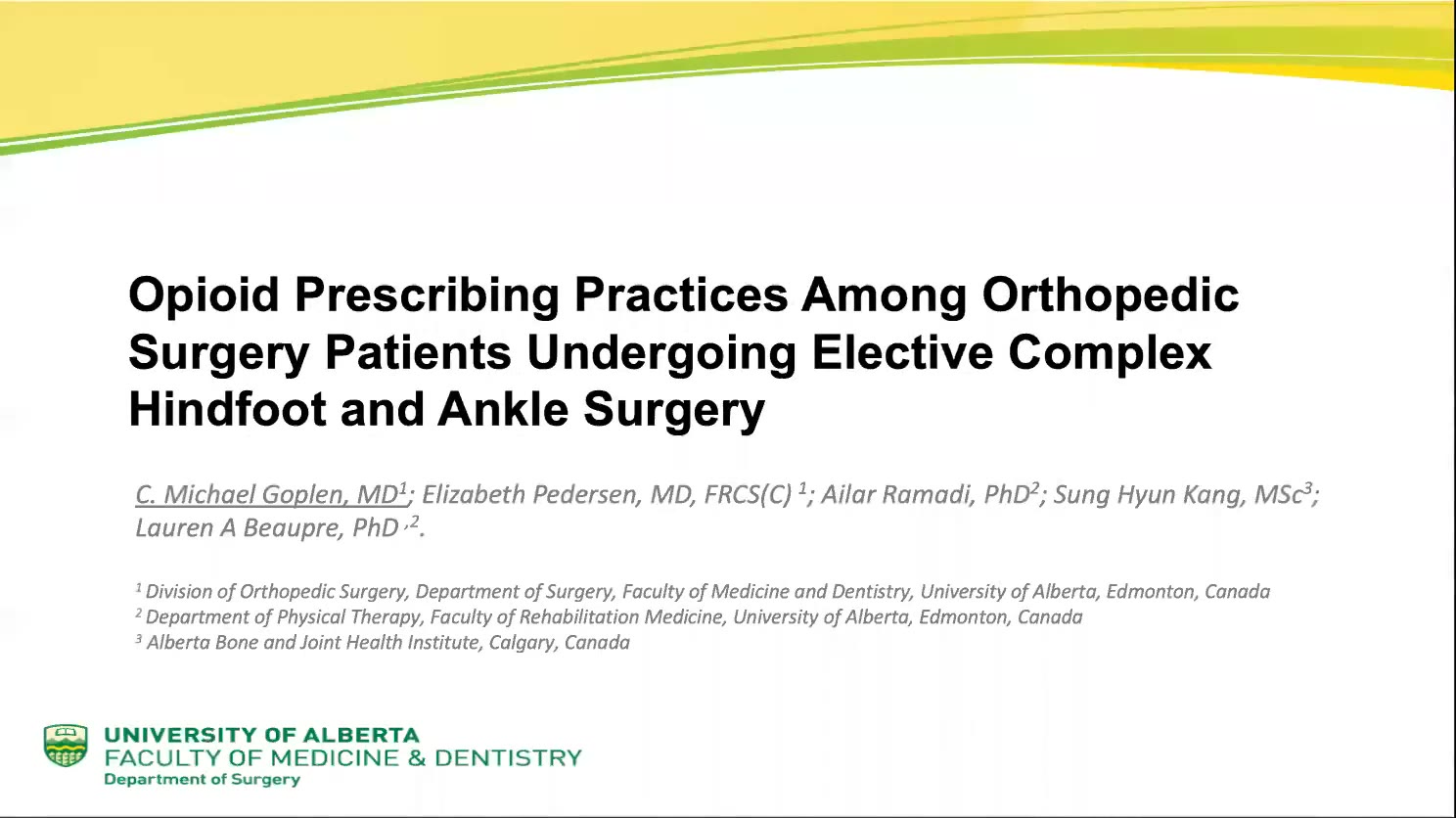Please login to view this media

- Talk
- 15/09/2021
- Canada
Opioid Prescribing Practices Among Orthopedic Surgery Patients Undergoing Elective Complex Hindfoot and Ankle Surgery
Description
In this presentation, Michael Goplen discusses the significant issue of opioid prescription for patients with degenerative joint conditions, particularly those waiting for elective hind foot and ankle surgeries in Canada. He highlights that while opioids have historically been used to manage pain and maintain function in these patients, recent findings indicate that they provide no substantial benefits over other non-opioid alternatives like acetaminophen or ibuprofen, and their use contradicts national guidelines. Goplen presents data showing that up to 30% of patients awaiting total knee arthroplasty in Canada have been prescribed opioids, leading to more complicated postoperative outcomes. He explains a study aimed at examining opioid use patterns among patients undergoing elective foot and ankle surgeries. The study retrospectively reviewed 100 patient cases, revealing that 45% received opioids ahead of surgery, with 19% classified as long-term users. The analysis also draws comparisons to previous studies on knee replacements, noting a higher prevalence of opioid use in the foot and ankle group. Further, the impact of prolonged surgical wait times on opioid prescriptions is discussed, along with demographic data like the prevalence of obesity and smoking among long-term opioid users. The study investigates post-operative opioid use, indicating that those who were long-term users pre-surgery had significantly higher requirements and faced more complications. Goplen concludes by stating that family physicians are primarily responsible for prescribing these opioids, and emphasizes the need for improved triage and referral practices to identify high-risk patients, aiming for better surgical outcomes.